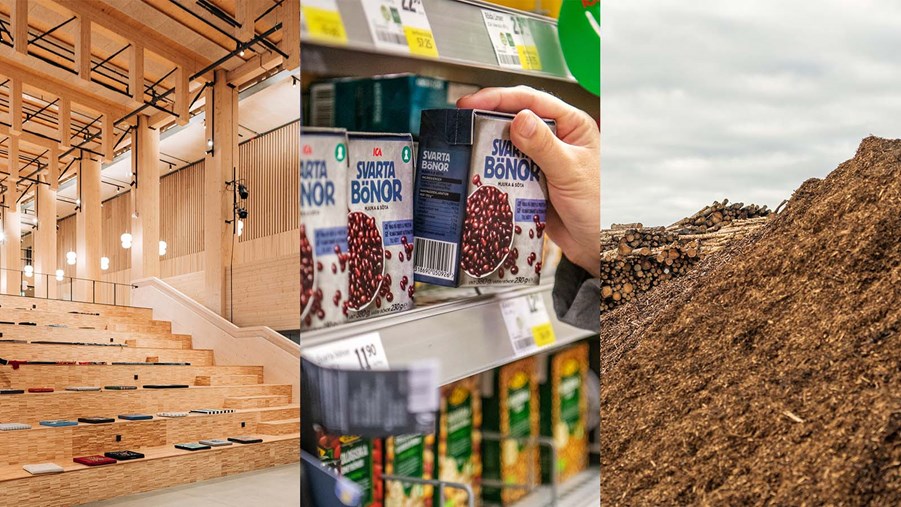
As the EU leaders prepare to convene in Brussels this week for the European Council summit, Commission President Ursula von der Leyen has written to Heads of State and Government urging progress on an agreement for the EU’s 2040 climate target.
As the EU leaders prepare to convene in Brussels this week for the European Council summit, Commission President Ursula von der Leyen has written to Heads of State and Government urging progress on an agreement for the EU’s 2040 climate target.
In the letter, President von der Leyen dedicates a section to Land Use, Land Use Change and Forestry (LULUCF) framework, emphasizing that the framework must include realistic targets and highlighting the role of substitution effect for a functioning bioeconomy. While the Commission President acknowledges the challenges in meeting 2030 targets, she promises pragmatic solutions.
Currently , the EU has binding targets for LULUCF carbon sinks by 2030. The Swedish Forest Industries has long argued that in order to meet the 2040 climate target, the EU also needs to adopt a realistic approach for the LULUCF, which is of key importance for both climate mitigation and the bioeconomy. This fact was also highlighted in a joint letter earlier this fall by the Prime Ministers of Sweden and Finland, calling for a revised and more flexible LULUCF Regulation that accounted for natural variability, national circumstances, and sustainable forest management.
”The Swedish Forest Industries Federation welcomes the letter by President von der Leyen and the Commission’s recognition of the need for realistic targets when it comes to the LULUCF Framework. To meet its climate objectives, Europe must focus on phasing out fossils and recognise benefits of the bioeconomy rather than relying on forests to compensate for emissions from other sectors,” says Viveka Beckeman, Director-General of Swedish Forest Industries Federation.
The EU has long viewed its forests primarily as a carbon sink. It is time to challenge this view and recognise the role of forests as an invaluable renewable resource that can substitute fossil-based materials and fuels and thereby enable Europe to meet its goals on climate mitigation and economic security, competitiveness and resilience.
To succeed in this, Europe needs a new, more flexible LULUCF framework:
- A new approach: prioritise phase-out of fossil materials and fuels, instead of using the land-use sector to offset emissions elsewhere.
- An adaptive regulation: LULUCF needs to support bioeconomy’s potential for substitution, long-term raw material supply and sustainable carbon storage.
- Realistic and flexible targets: Carbon sinks fluctuate from year to year due to natural disturbances and market dynamics. To be achievable, targets must be adjustable accordingly.
- Active forest management: Increased forest growth through sustainable management is essential for strengthening carbon sequestration and ensuring a reliable supply of renewable raw materials.
- Promote green growth: Through active forest management and the sustainable use of wood-based products, Europe can simultaneously increase its carbon sink capacity and secure the renewable resources needed for a fossil-free, competitive economy.


